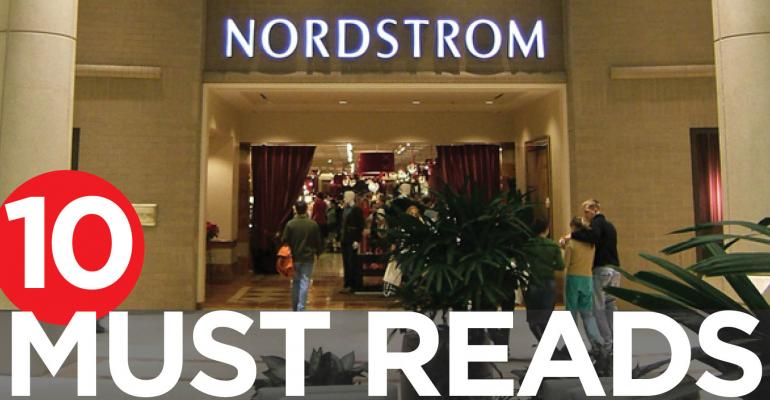- Laszlo Birinyi is Calling S&P’s 500’s New 11th Sector a Boondoggle “Real estate will become the S&P 500’s 11th sector next month. Market historian and money manager Laszlo Birinyi isn’t applauding. Birinyi, in a Monday note, characterized the move as aimed more ‘to the benefit of the vendor and not the customer.’ The move by S&P Dow Jones Indices and MSCI, announced in March 2015, carves 28 real-estate investment trusts and real estate management and development companies out of the financial sector and lets them stand alone as their own sector.” (MarketWatch)
- Canadian C-Store Giant Buying Up More U.S. Stores “On the heels of the biggest deal in its history, Canada’s Alimentation Couche-Tard Inc. has entered into yet another deal to expand its U.S. footprint. The retailer has signed an agreement to buy 53 stores in Louisiana, primarily in the Baton Rouge market, from American General Investments and North American Financial Group for an undisclosed price. The stores currently operate under the Cracker Barrel banner, and include 12 quick-service restaurants.” (Chain Store Age)
- How Much Space Would $1,500 Get You in Major U.S. Cities? “If you had $1,500 rent to blow every month in one of America’s major cities, how far would you get? RENTCafé, a website for apartment seekers, found out by analyzing apartment size and rental data across the nation’s 30 most populous cities. The following infographic provides a breakdown of the top-10 U.S. cities offering the very worst bang for your buck in terms of apartment size. New York is notorious for its high rents and it comes as no surprise that the Big Apple AAPL offers the least space for $1,500.” (Forbes)
- Apple’s Retail Stores Are Undergoing a Dramatic Makeover “Apple is thinking different—again. This time, the tech giant wants to revolutionize the havens where it hawks its wares by making them destinations for far more than just gadgetry. Since 2014, retail chief Angela Ahrendts and design chief Jony Ive have been collaborating to revamp the wildly lucrative Apple Store, its glassy temple for iPhones, iPads, Macs, and Watches. In May the first fruits of that collaboration were on display at a new flagship store in San Francisco’s Union Square.” (Fortune)
- Kroger Could Be Looking to Snap Up Walgreens, Rite Aid Stores “Kroger was rumored to be a potential buyer of Rite Aid more than a year ago, before the drug store chain reached a deal in October to be acquired by Walgreens parent Walgreens Boots Alliance. While that deal has been in progress for nearly a year, it is still on track to be completed by year-end. Walgreens had said when it announced the deal that it would be willing to sell up to 1,000 Rite Aid stores, but experts are saying it’ll likely need to sell only about 500 of Rite Aid’s 4,600 stores.” (Cincinnati Business Courier)
- What Blackstone, Inland Moves Mean for Non-Traded REITs “One of the main reasons non-traded REITs got a bad rap is the high upfront fees and selling commissions they charge—an average of 13.2 percent. This is a direct result of how they have historically been distributed, through independent broker-dealers (IBDs). Sponsors paid these IBDs a lot of money to sell their REITs. Oh wait a minute, they didn’t; Investors did. High-selling commissions have the obvious impact of immediately reducing one’s investment amount.” (Commercial Property Executive)
- Jeff Sutton, Partners Get $195M Refi for 529 Broadway in Soho “UBS and Morgan Stanley have teamed up to provide $195.3 million in financing on Soho’s nearly completed, six-story retail development at 529 Broadway on the corner of Broadway and Spring Street, according to records filed with the city today. Jeff Sutton’s Wharton Properties, along with other high-level real estate investors Bobby Cayre’s Aurora Capital Associates, A&H Acquisitions and Joseph Sitt’s Thor Equities, purchased the property in December 2012 for $146.9 million from the Goldstein family, city records indicate.” (Commercial Observer)
- The 100 Macy’s Stores to Close Will be Announced after Christmas “The incredible shrinking Macy's empire plans to announce the locations of most of its 100 store closures by the end of January. Elina Kazan, national spokeswoman for Macy's, said Monday that the majority of the targeted stores to shut will be announced by the end of January 2017, or in about five months. ‘For those remaining locations, it will be sometime later - not yet determined when.’ When it announced the 100 closures Aug. 11, Macy's said it would focus on its e-commerce strategy, as the Gap and JCPenney have done. They, too, are shedding stores as more shoppers migrate online.” (Philadelphia Inquirer)
- Premier Indy Office Campus Fetches $163M “Parkwood Crossing, a premier office campus in Indianapolis, has changed hands in a transaction valued at $163 million. Duke Realty Corp. sold the 1.2 million-square-foot property to a joint venture of Rubenstein Partners and Strategic Capital Partners, with commercial real estate services firm JLL providing a helping hand to both seller and buyer. Duke tapped JLL to market the eight-building complex as part of its portfolio repositioning program—the REIT is getting out of the suburban office business and focusing on the industrial and medical office sectors.” (Commercial Property Executive)
- J.Crew Lines Up a New Partner with Nordstrom “J.Crew thinks it has found one way to help shake nearly two years of same-store sales declines: selling its flagship brand’s clothes at Nordstrom JWN 2.29%. The struggling apparel chain, which has been grappling with big sales drops after higher prices and fashion misreads angered many in its legions of shoppers, will start selling women’s clothes at 16 of the upscale department store’s locations beginning Sept. 12. Nordstrom already sells J.Crew Group’s Madewell brand at 76 stores and online.” (Fortune)
0 comments
Hide comments

